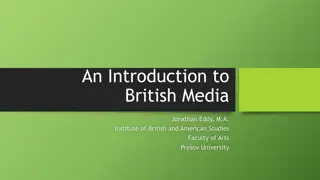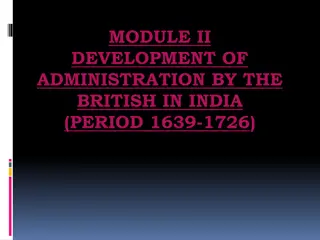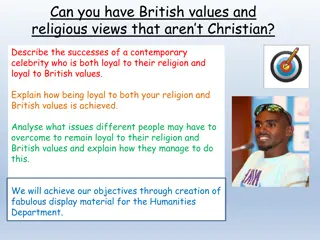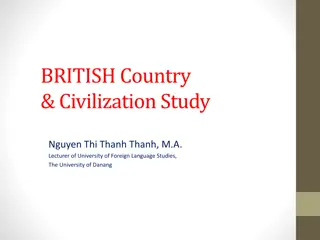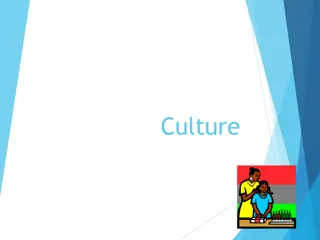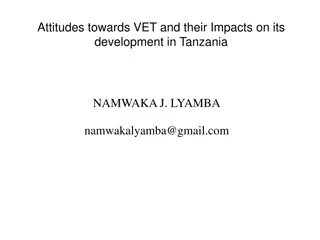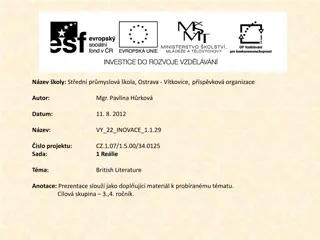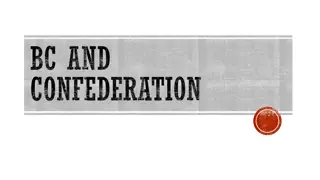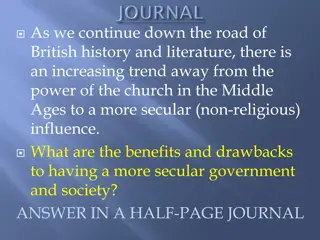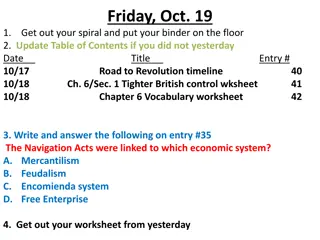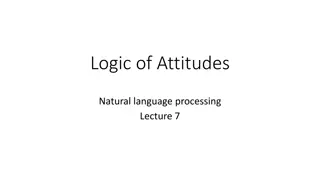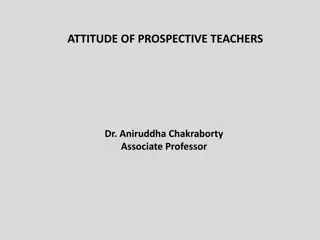British Cultural Attitudes
Delve into the stereotypes, traditions, and changes in British culture, from public ceremonies to everyday life. Discover how attitudes towards education, intellectualism, and fairness shape British society. Uncover the nuances of British customs and behaviors, shedding light on both the traditional and the evolving aspects of this rich culture.
Download Presentation

Please find below an Image/Link to download the presentation.
The content on the website is provided AS IS for your information and personal use only. It may not be sold, licensed, or shared on other websites without obtaining consent from the author.If you encounter any issues during the download, it is possible that the publisher has removed the file from their server.
You are allowed to download the files provided on this website for personal or commercial use, subject to the condition that they are used lawfully. All files are the property of their respective owners.
The content on the website is provided AS IS for your information and personal use only. It may not be sold, licensed, or shared on other websites without obtaining consent from the author.
E N D
Presentation Transcript
BRITISH CULTURE 2 Lecturer: Cam Lien, M.A Email: camlien0104@gmail.com Phone: 0947320041
Stereotypes and Change Public life The annual ceremony of the state opening of the Parliament follow the customs carefully Military ceremony of trooping the colour Changing of the guard outside Buckingham palace NEVER CHANGE
Stereotypes and Change Private everyday life British are probably less inclined to follow tradition There are few age-old customs English language has fewer sayings or proverbs in common everyday use than other languages
Stereotypes and Change Stereotype image of London city gent wearing bowler hat not typical any more Traditional British breakfast is large fry-up not typical any more The tradition of afternoon tea minority activity (retired people, leisured upper middle class)
Queuing Why? Fairness/ they want everything to be fair
Anti-intellectualism Teacher and academic staff although respected, do not have as high status in society as they do in most other countries Traditionally, large sections of both upper and working class were not interested in their children getting to university
It is still unusual for parents to arrange extra private tuition for their children Small proportion of population holds such attitudes. (England) British people like to know things especially quizzes
English anti-intellectualism vocabulary Swot: someone who worked hard and did well academically Teacher s pet: students show desire to learn Clever: a person who cannot quite be trusted/ somebody who get all ideas from books intellectual Negative meaning
A multicultural society It s made up of four different nations - England, Scotland, Wales, and Northern Ireland are all different countries with different dialects, customs, music, and languages. Different cities in the UK also have different proportions of various ethnic groups. For example: London has Indian community Liverpool has an old Black community. Liverpool is also home to the oldest Chinese community.
Conservatism British people like symbols of tradition For example: Like traditional family values (both parents married and living together, parents as the main source of authority for children, ect) Enjoy living the the old houses Like Christmas cards to depict scenes from past centuries Like pubs to look old Complain bitterly when system of currency was changed
Being different Driving on left- hand side Remaining 1 hour behind Central European Time Start its financial year at the beginning of April System of measurement is metric system (feet/mile/stone...)
Love of nature The first country in the world appoint a government- sponsored conservation body (1949) and the first large green pressure group was founded (1961) Ideal vision of the countryside: Countryside means peace and quiet, beauty, health, and no crime Gardening is one of the most popular hobbies in the country and gardening programmes on radio and TV are very popular
Love of animals British tend to have a sentimental attitude to animals Half of households (50%) in Britain keep at least one domestic pet Bird-tables in the garden: a raised platform on which birds can feed
Formality vs Informality Formal Clothes Public role (On duty) Informal Clothes Private role (being themselves) Not shake hand Not address someone by his or her titles (Mr, Mrs ) Not dressing smartly when entertaining guests Not saying please when making a request Friends Shake hand Address someone by his or her titles (Mr, Mrs ) Dressing smartly when entertaining guests Saying please when making a request Strangers/ Acquaintance
Kiss when meeting friends (both women and women, men and women, rarely men and men)
Privacy and sex Rude to ask personal questions (salary, family, sex life) or keep silent In passing, casual conversation, British people talk about the weather because they want to fill the gap (They don't like silence)



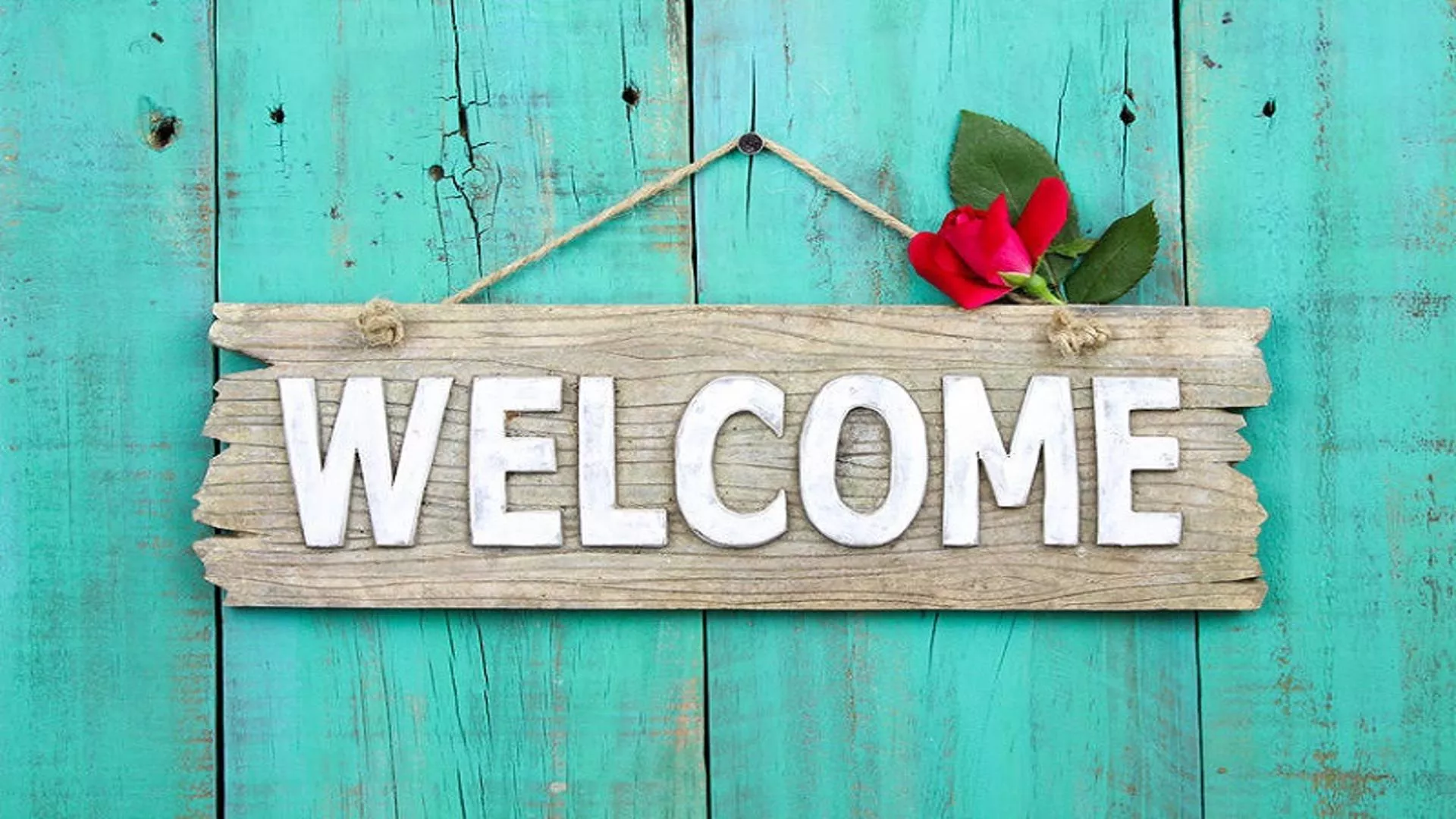
 undefined
undefined



